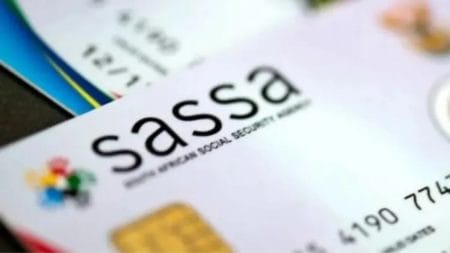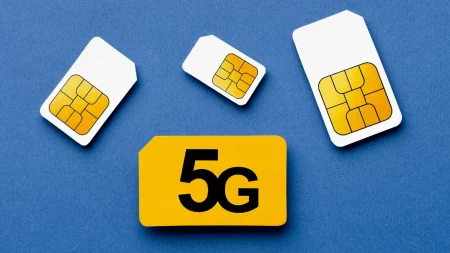SASSA Issues Warning Against Scammers Targeting Elderly Grant Beneficiaries.
The South African Social Security Agency (SASSA) has recently alerted the public about an increase in scams aimed at older grant recipients. These fraudulent schemes often involve impersonators claiming to represent SASSA, luring seniors with false promises of additional payouts, quicker processing, or improved benefits in exchange for personal information or upfront payments. SASSA emphasizes that its services are free, and under no circumstances will representatives request payment or confidential details, such as bank PINs, from beneficiaries.
To protect against these scams, elderly recipients and their families are urged to stay vigilant, verify all communication directly with SASSA, and report any suspicious activity immediately..
What is the Scam?
The scammers operate by impersonating SASSA officials or representatives of official organizations. They approach elderly social grant recipients and attempt to convince them to sign up for funeral policies or insurance cover. Using various company names, these fraudsters appear at the homes of vulnerable elderly individuals, creating an illusion of authority to gain trust. Many elderly recipients, fearing loss of benefits or hoping for better financial security, may fall victim to these fraudulent schemes.
Key Points:
- Scammers pretend to be SASSA officials or legitimate agents.
- They typically target elderly people at their homes.
- They try to sell “funeral cover” or “insurance policies.”
- SASSA is not affiliated with these companies and does not send representatives to private homes.
SASSA’s Official Stance
SASSA has clarified that it is not in partnership with any companies offering funeral cover or insurance. Genuine SASSA services are only available at official SASSA offices, and the agency does not employ agents to visit grant recipients’ homes. This means that any individual claiming to represent SASSA and attempting to sell policies or gather personal information outside an official SASSA office is likely a scammer.
In response to this rise in fraudulent activities, SASSA urges beneficiaries and community members to report any suspicious approaches. They emphasize that the agency’s role is strictly to administer social grants and provide support at designated offices, never through third-party agents. Beneficiaries are advised to stay vigilant and protect their personal information.
SASSA Issues Warning Against Scammers
Elderly grant recipients are a vulnerable group due to various factors:
- Reliance on Social Grants: Many elderly individuals rely solely on their social grants, making them susceptible to offers that promise additional financial support.
- Limited Knowledge of Scams: Not all elderly recipients have access to information about scams or know how to verify legitimate services.
- Trusting Nature: Older individuals may be more likely to trust people who appear in person, especially if these individuals claim to be from government agencies.
Scammers exploit these factors, hoping to gain sensitive information like identity numbers or bank details, which can be used for fraud or identity theft.
Related Content: How to Avoid Scams When Collecting Your SASSA Grant at Retailers
How to Recognize a Scam
It’s essential for social grant beneficiaries and their families to know the signs of a scam. Here are a few red flags to watch for:
- Unannounced Visits: SASSA does not conduct home visits for administrative purposes. Anyone who arrives without prior notice claiming to be from SASSA is likely to be a scammer.
- Requests for Personal Information: No legitimate SASSA official will ask for sensitive information like identity numbers, bank account details, or grant numbers during a home visit.
- Offers of Extra Benefits or Insurance: If someone tries to sell funeral cover, insurance policies, or any additional “benefits” connected to SASSA, it is a scam. SASSA’s mandate does not include providing insurance.
- Urgency and Pressure Tactics: Scammers often use pressure tactics to make people act quickly. They may say things like, “This offer is only valid today,” to prevent the person from thinking things through or seeking advice.
How to Protect Yourself and Loved Ones
Here are practical steps that social grant beneficiaries and their families can take to safeguard against these scams:
- Do Not Share Personal Information: Keep your ID number, bank details, and other personal information private. Only provide these details to SASSA officials at official offices.
- Seek Advice from Family or Community Leaders: Elderly individuals should talk to family members or trusted community leaders if they are approached with unfamiliar offers.
- Verify Information with SASSA: If approached by someone claiming to be from SASSA, verify their identity by contacting SASSA directly. Never hesitate to confirm details.
- Visit Official SASSA Offices: For all grant-related inquiries, visit a SASSA office in person rather than dealing with individuals outside official locations.
Reporting Suspicious Activity
If you or someone you know has been approached by a suspicious individual claiming to be a SASSA official, it’s crucial to report this immediately. SASSA has set up toll-free numbers to assist the public in these matters.
- SASSA Toll-Free Number: 0800 60 10 11
- Fraud Hotline: 0800 701 701
These hotlines are in place to help prevent fraud, protect beneficiaries, and provide guidance on any concerns. Reporting suspicious activities promptly can help protect others and prevent scammers from targeting more people.
What to Do If You’ve Already Given Information
If you or someone you know has already provided information to a scammer, take the following steps immediately:
- Report to SASSA: Call the Fraud Hotline at 0800 701 701 to report what happened.
- Monitor Your Finances: Keep a close watch on any accounts or financial transactions. If there is any unusual activity, report it to your bank.
- Update Personal Information if Necessary: In some cases, it may be necessary to change personal information or accounts to protect against identity theft.
Raising Awareness in the Community
Raising awareness within the community can help prevent more people from becoming victims. Here are some ways to spread the word:
- Community Meetings: Organize meetings in community centers to inform elderly residents about the dangers of this scam.
- Church and Social Group Announcements: Many elderly individuals participate in church or community groups, which are excellent platforms for sharing safety information.
- Social Media Sharing: If you are active on social media, share posts from SASSA’s official page or create posts to warn others.
- Radio and Local News: If possible, contact local radio stations to discuss the issue and inform listeners, especially those who might not have access to social media.
Related: FNB and Nedbank Address Hacker Claims of R175 Million SASSA Theft
Final Thoughts
The increase in scams targeting elderly SASSA beneficiaries is a serious issue that needs collective community effort to address. Awareness and caution are the best defenses against these fraudsters. Elderly individuals and their families must remain vigilant, report suspicious activity, and only trust information and services from official SASSA offices.
By taking these precautions, we can work together to protect the dignity and security of our elderly population.










